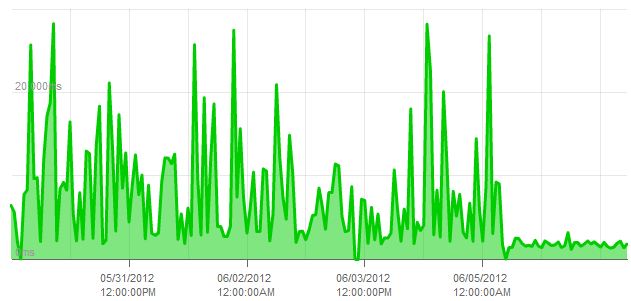While the popular conception of a university professor is someone who stares at arcane notation on a whiteboard until interrupted by the need to teach pesky undergraduates, there are many more activities that are part of the professorial portfolio. We drink coffee with colleagues, gossip about departmental politics, attend conferences in far-flung locales, referee papers, train doctoral students, write blog entries, tweet, volunteer for professional societies, and much more. There are a ton of things that can go into a professional life.
One key professional role is that of editor of a professional journal. Editing a journal is not a job to take on lightly. It requires a 3-5 year commitment and that commitment is contuous. Except for editing the “big journals” like Management Science or Operations Research, an editorship is not terrifically time consuming, requiring just a few hours per week. But it requires those hours each and every week: nothing will kill a journal quicker than an on-and-off editor who only responds when crises have grown so large as to not be ignored.
In return for that time, the editor can have a unique and personal effect on a journal. The editor’s judgement will determine the quality of the journal, and the editor’s energy will define the scope and creativity in the journal.
There are two journals that are looking for editors for which this scope and creativity issue is particularly important:
- INFORMS Journal on Education. ITE is an online-only journal of INFORMS with a goal of advancing education in OR/MS. The journal has published pieces on educational theory, case studies, surveys, curricula, and much more. I have found the journal to be very useful as I prepare my classes, and I have published in it. This would be a great post for a creative researcher with a passion for educational issues. Nominations are due June 30, 2012
- Surveys in Operations Research and Management Science. I am even closer to this journal, since I am one of the thee (along with Jan Karel Lenstra and Bert Zwart) co-editors. This journal was designed as the followup to the well-regarded Handbooks in ORMS that Jan Karel Lenstra and George Nemhauser handled for a decade or so. The idea was to publish high quality surveys (like in Handbooks) without the lead time required by the Handbooks. Like many new journals, it has been a real task to get off the ground, but we will have published three years worth of journals at the changeover. This journal needs a highly-energetic, well-connected editor who can give it near undivided attention over the next few years to put the journal on solid footing. It is an Elsevier journal which gives it some disadvantages (some choose not to work with commercial publishers) and advantages (editorial support is very, very good). I’ve greatly enjoyed working with Jan Karel and Bert and the rest of the team on this, but it needs an individual or group which is less scattered in their interests than I am at this point. Applications are due July 31, 2012.
Taking on a journal is a big responsibility, but it can be very rewarding. Short of doing Lanchester Prize level work, it is one of the best opportunities you have to have a real effect on the field.

